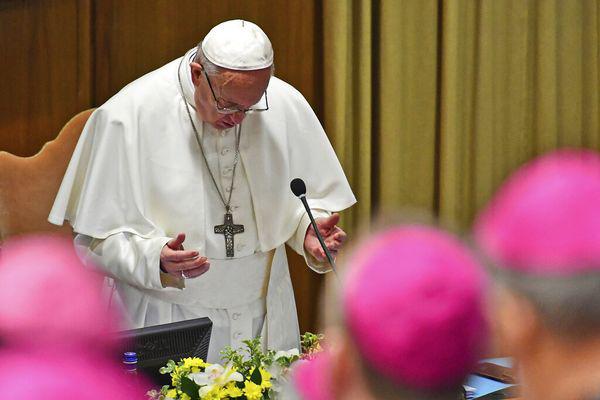|
Good message, bad optics at Vatican summit
By Rev. Alexander Santora
Late last month, Pope Francis convened an unprecedented meeting of the heads of national conferences of bishops throughout the world and achieved his goal. “The church has now become increasingly aware of the need not only to curb the gravest cases of abuse by disciplinary measures and civil and canonical processes, but also to decisively confront the phenomenon both inside and outside the church,” Francis said at the summit’s opening. He rejected criticism that identifying abuse more widely is minimizing the church’s culpability. But some victims of abuse by clergy and other critics of the church’s plan call it insufficient. And the lack of church reform undercuts the church’s determination to move forward. The pope offered 21 points for consideration by the bishops, curia officials and heads of religious orders, including a small group of nuns. Among the points were to remove perpetrators, prepare a practical handbook, establish protocols to handle accusations against bishops, and establish pastoral care for those injured by abuse so they can move toward recovery. “To decide that priests and bishops guilty of sexual abuse of minors leave the public ministry” was one of the more urgent points Francis shared. This is what people wanted to hear. What they did not see is a change in church law to back it up. True, Pope Francis can do this with his signature. But that may not achieve what was more important to him: getting global church leaders to realize this is a worldwide problem, and not just in the church. There are also national concerns. American jurisprudence will assure the rights of accused clergy; that’s not so in parts of Asia and the Middle East where reporting a priest to civil authorities can be tantamount to a death sentence. Francis wants each conference to craft policies that suit their culture effectively. While the Vatican was the natural place to hold this summit, it can also be a circus atmosphere with the worldwide press chronicling every protest and giving a platform to each critic. Many abuse victims are still angry and have not reconciled their feelings. When the church makes one move, some will demand three more. It may never satisfy some victims. Complicating this summit were revelations that bishops and priests have abused nuns, that abuse of children by nuns is getting more attention, that priests have fathered children despite a vow of celibacy and a new book alleging that most of the Vatican clergy and hierarchy are gay. The most disappointing optic for me was the lack of more women in the summit. I would have required each bishop to invite a woman from his country -- the head of a hospital, perhaps, the leader of a religious order or a prominent businesswoman, etc. When the attendees broke into language groups, women would have been present to offer a different perspective and also show that the need for women in leadership is key to changing the clerical culture, a concern for Francis. One of the most significant books I have ever read is “In a Different Voice,” by Carol Gilligan. In it, the Harvard educator reveals that while on one level men and women are equal, there are differences that are complementary and necessary. For example, while men thrive on competition and the desire to dominate, she writes, women tend to be more inclusive to widen the circle of power. The scandals enveloping the church over mandatory celibacy, an antiquated understanding of sexuality, the primary need for intimacy and human warmth are not going away. Rather, they are driving millennials away from the church, which they see as rather unjust and out of touch. Pope Francis has done a remarkable job of positioning the church to face these challenges, but he gets significant pushback and may become less inclined to make changes. His summit did do one thing: Francis invoked the Vatican II collegial church and that is the church that will face the abuse problem and finally resolve it. Contact: padrealex@yahoo.com
|
.
Any original material on these pages is copyright © BishopAccountability.org 2004. Reproduce freely with attribution.
